At What Age Should a Child Learn a Musical Instrument?
“At what age should I introduce my child to music?” If you’re a parent who has pondered over this question and still hasn’t quite figured out the answer, read this article for a guide.
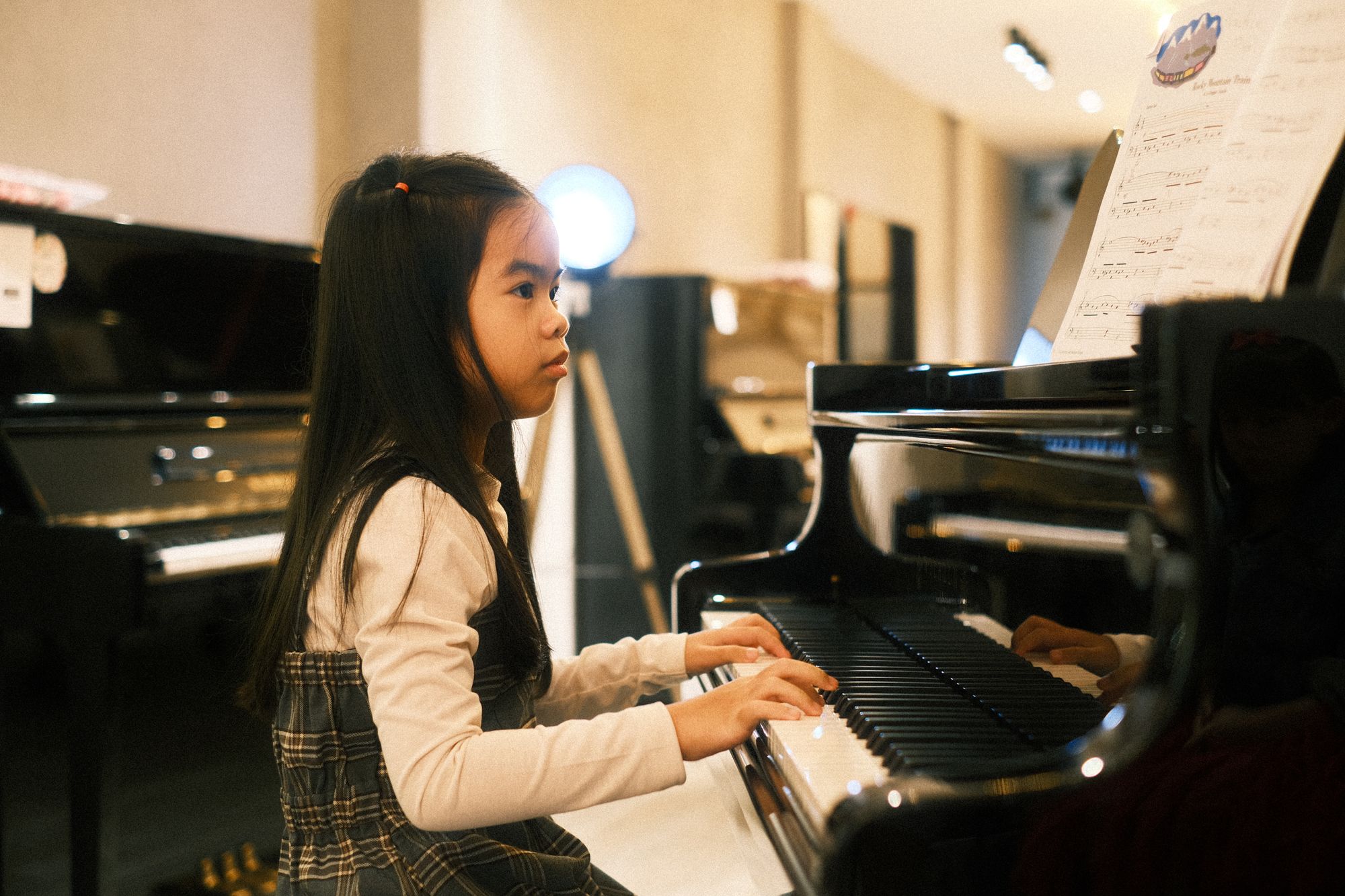
“At what age should I introduce my child to music?” If you’re a parent who has pondered over this question and still hasn’t quite figured out the answer, read this article for a guide.
Music is something that can be enjoyed by people of all ages, even small children who probably don’t quite understand what it is yet. But are they ready for music lessons?
Playing an instrument has many advantages for children. It helps boost their confidence, promote discipline, and enhance their academic performance and social skills. That is why a lot of parents try to make music a part of their children's lives. But what is the right age for a child to start learning a musical instrument? How do we know when is the right time?
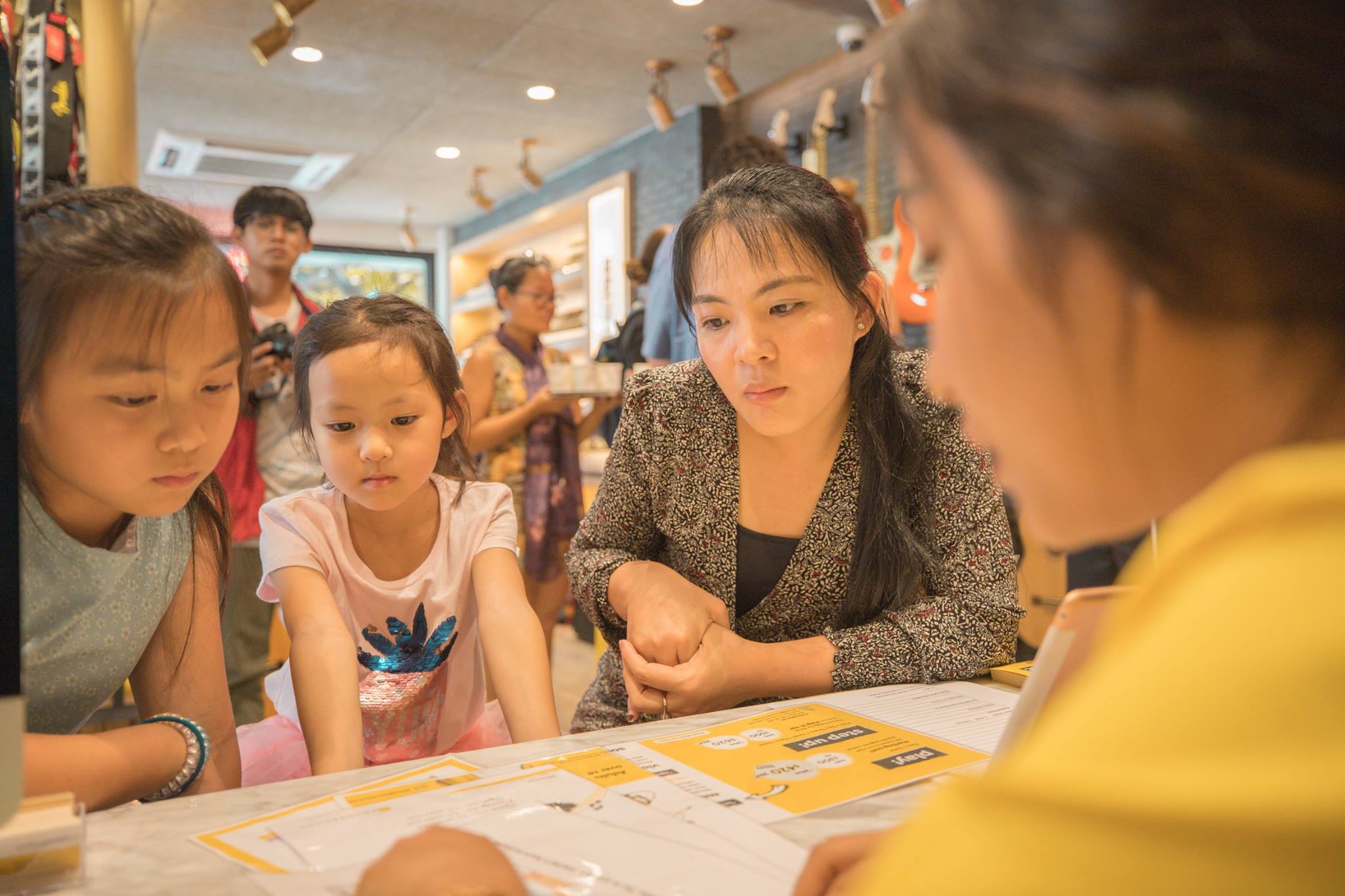
In this article, we will help you figure out when is the right time to introduce your child to different types of musical instruments, as well as the best course or program to enroll them in as they begin their music journey.
What is the Best Age to Start?
Starting early gives your child an advantage in sharpening their passion for an instrument. Through early exposure, you can observe what kind of instrument most captivates your child’s interest.
Ages 5 to 7 are usually the most ideal for starting to learn a musical instrument. Children’s hands and brains are not only capable of playing, but they can also start to comprehend the fundamentals of music. Children should have the strength and capacity to learn most instruments by this age.
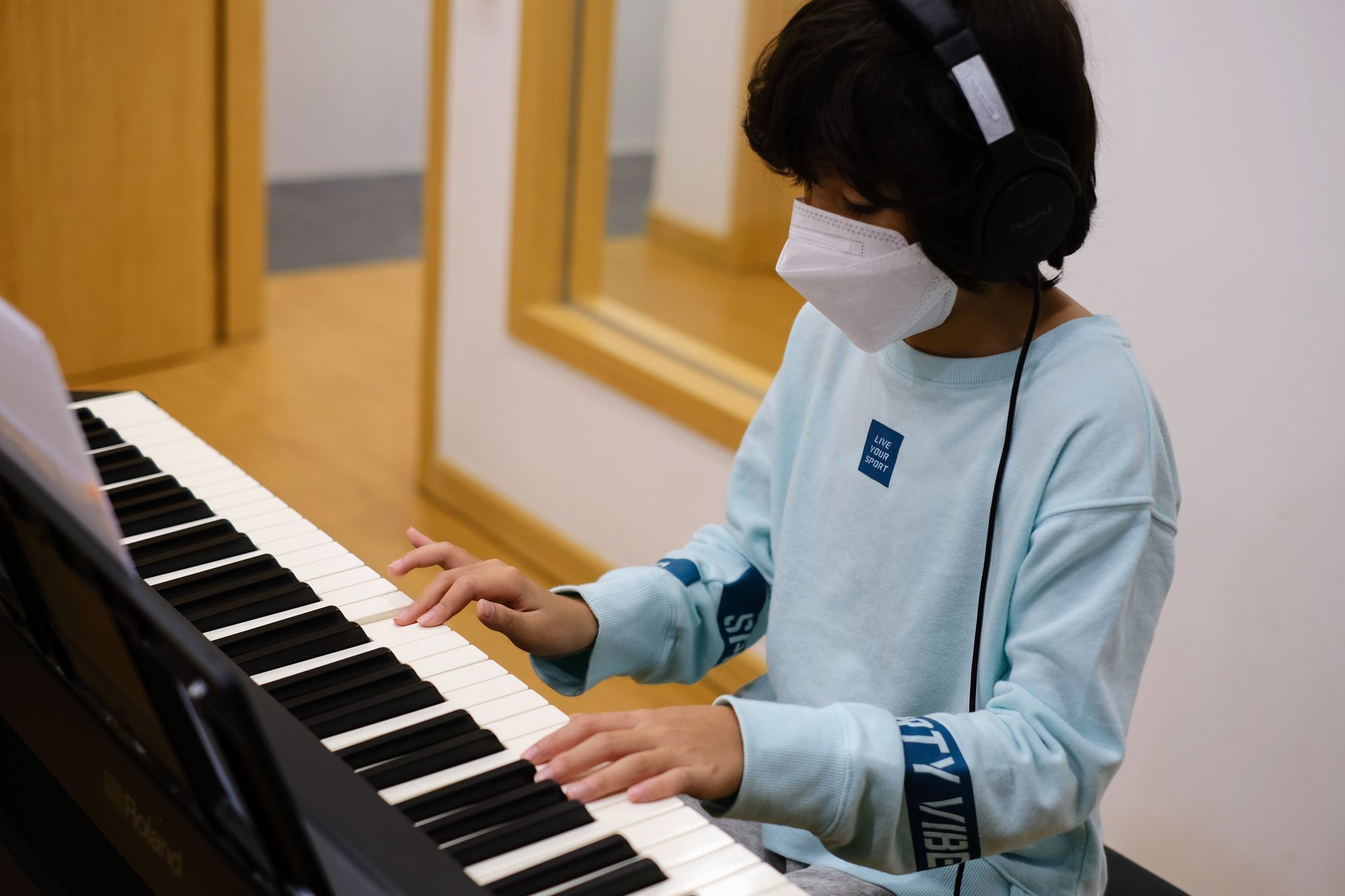
However, there is more to consider when selecting the ideal instrumental fit, such as the child's personal musical preferences, body size, special health issues, and musical aptitude. Taking a child’s personality and interests into consideration when selecting an instrument for them to learn is critical in engaging their long-term interest and progress in music.
Each musical instrument is unique and different. To be able to learn an instrument, there are some general requirements needed to aid the learning process, such as the child’s ability to count, read and understand basic English; the ability to concentrate for a set period of time along with some other physical requirements such as finger dexterity and hand coordination, etc.
For instance, for instruments like the piano and ukulele, the minimum age recommended to start is 5 years old or even as young as 4 as long as they have the necessary finger strength required to play and are physically able to hold the instrument comfortably.
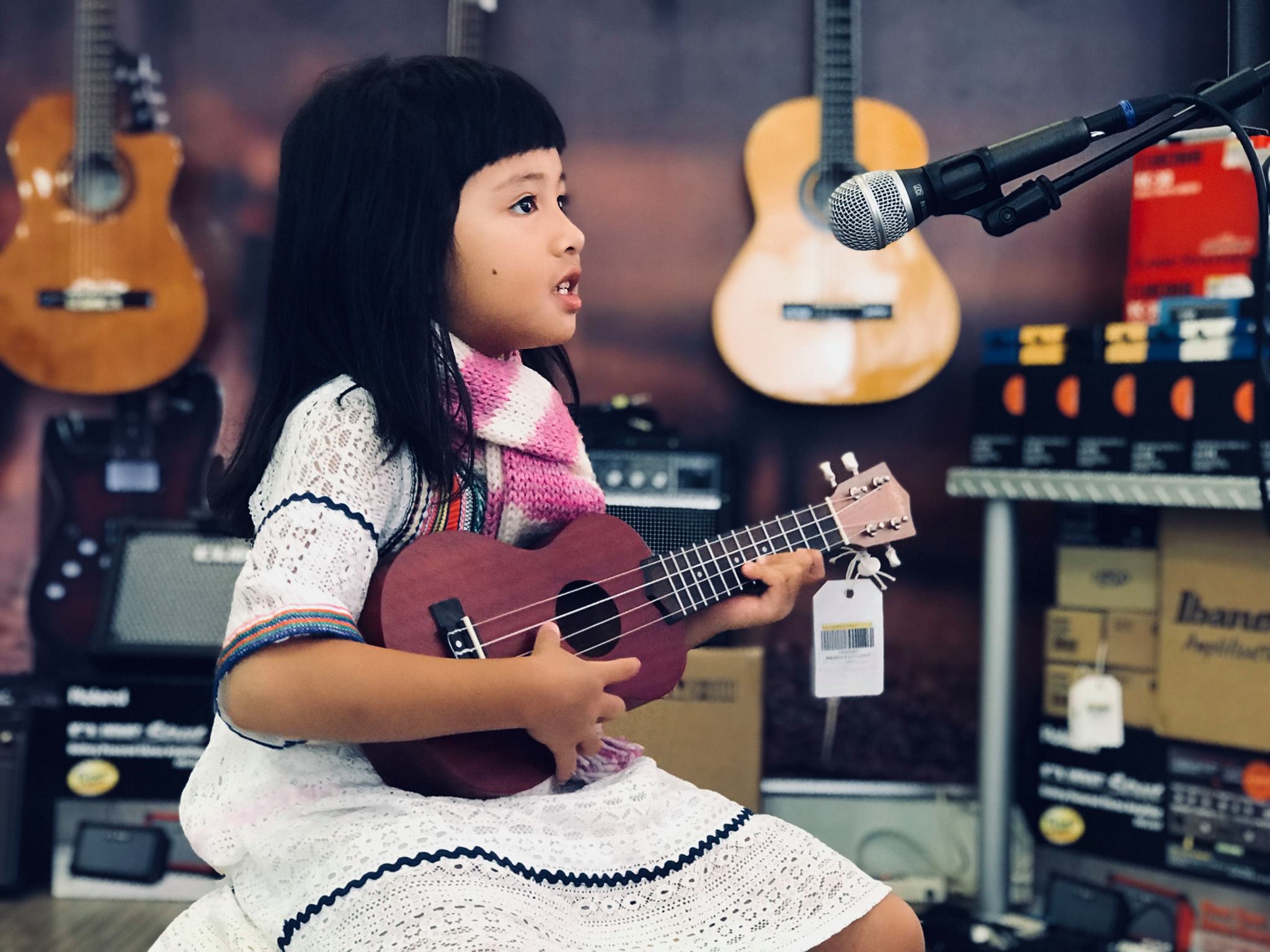
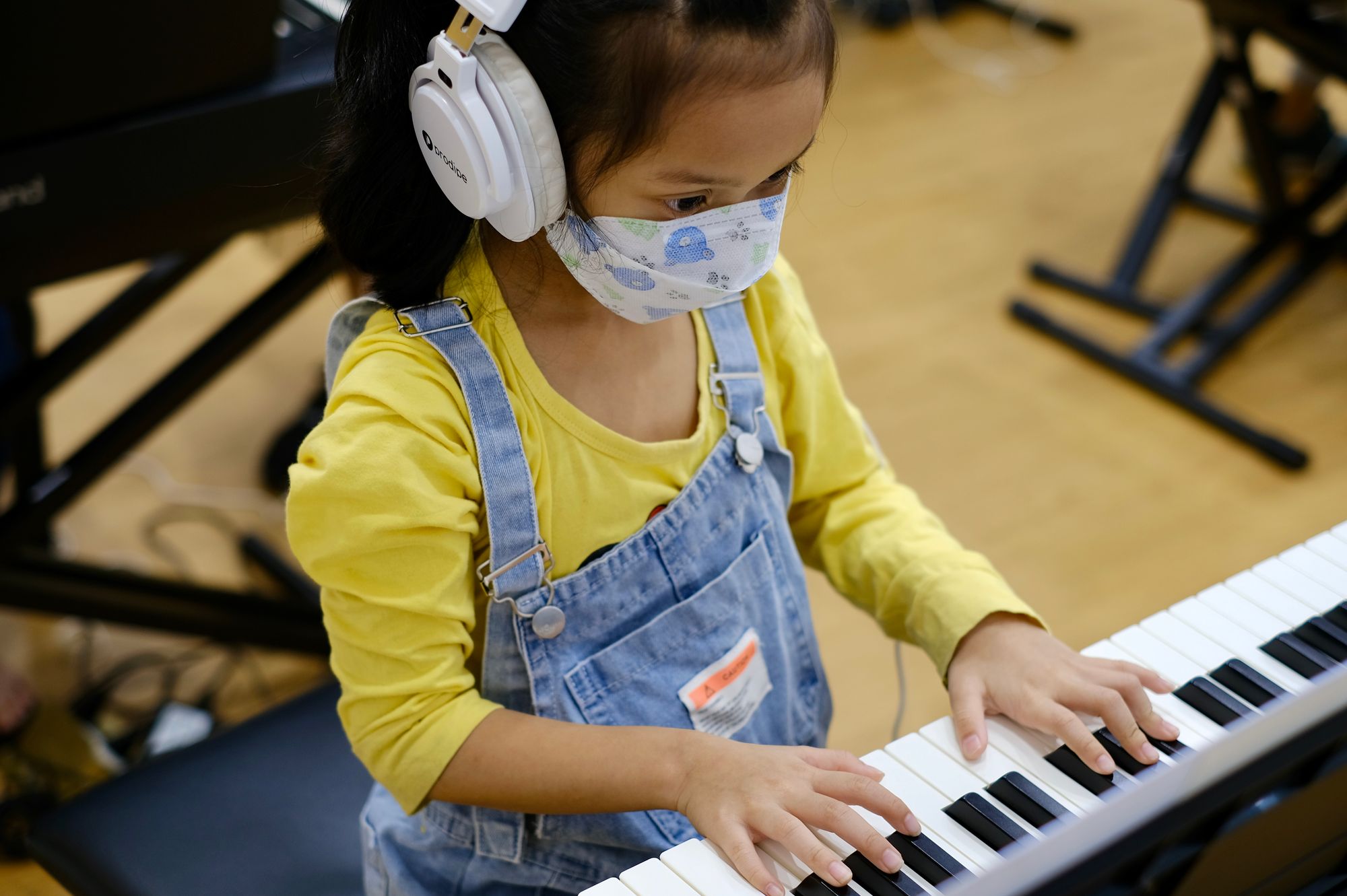
Whereas stringed instruments such as the guitar and violin, students are required to have good hand coordination in addition to strong finger and wrist muscles. The minimum age recommended to learn these instruments is at least 7.
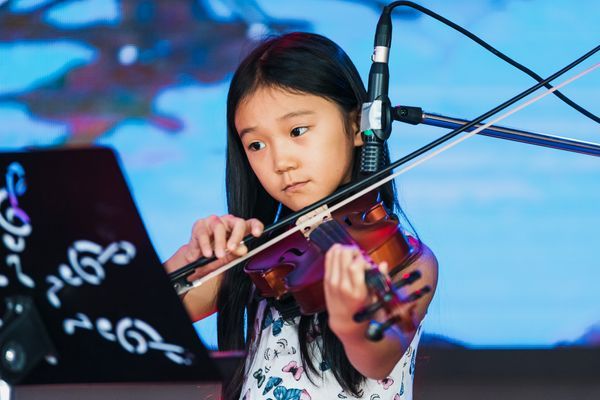
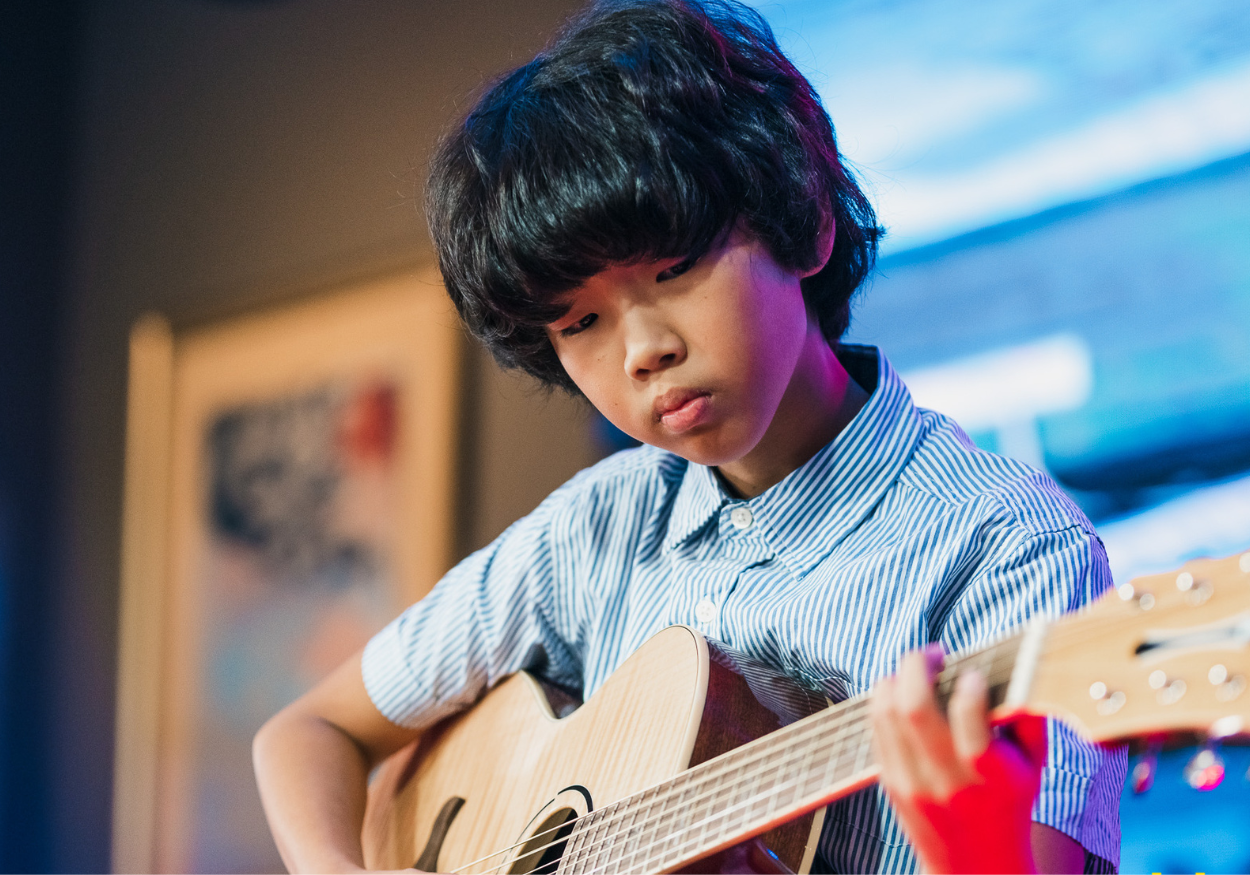
Drums, on the other hand, require basic synchronization between the limbs and the legs to be able to reach the pedals. The age recommended for this instrument is 6 years old.
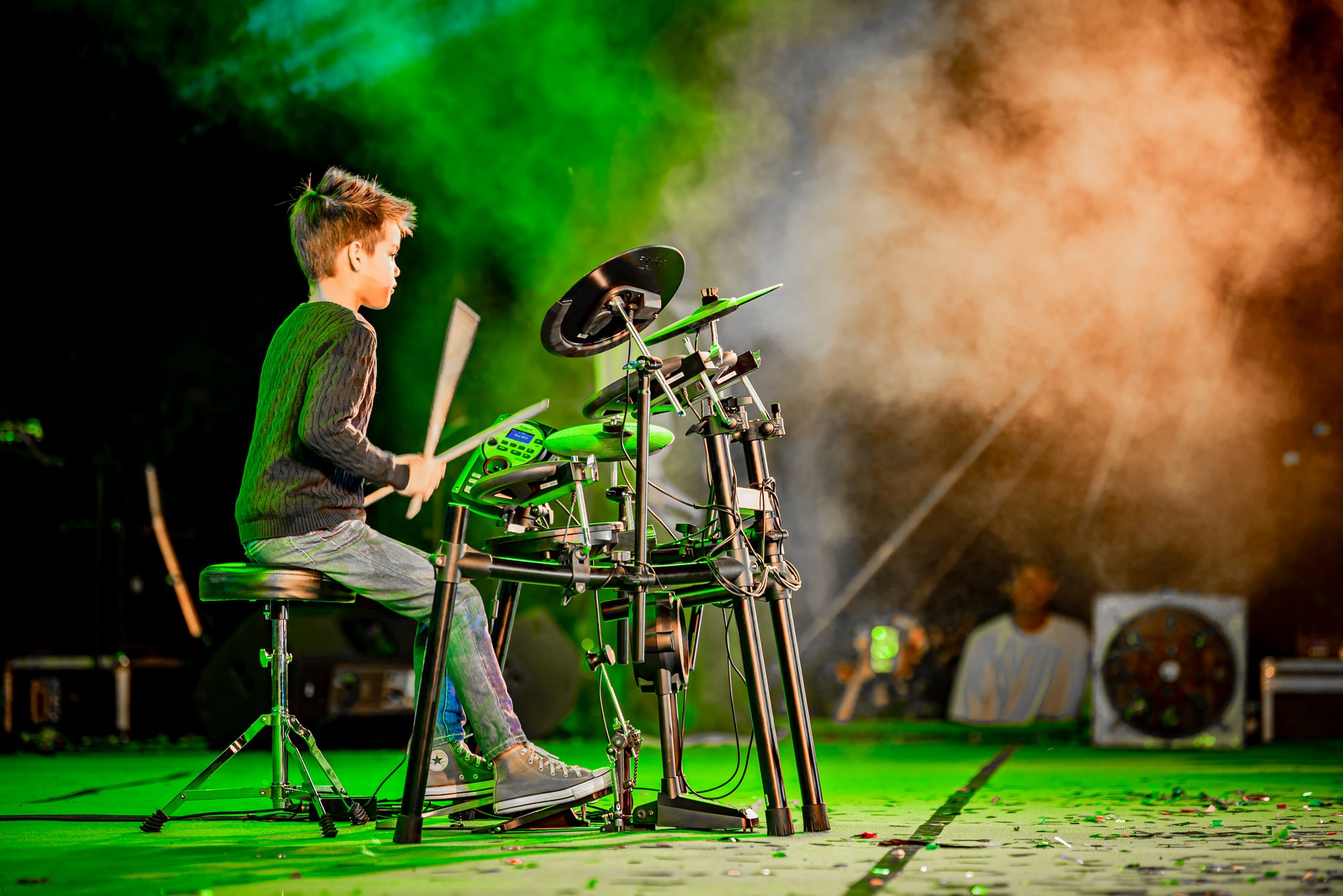
A versatile instrument like the saxophone, however, requires a lot of physical effort to learn as it is heavy to hold, needs strong finger dexterity and breathing control. The age recommended to start is 7 years old.
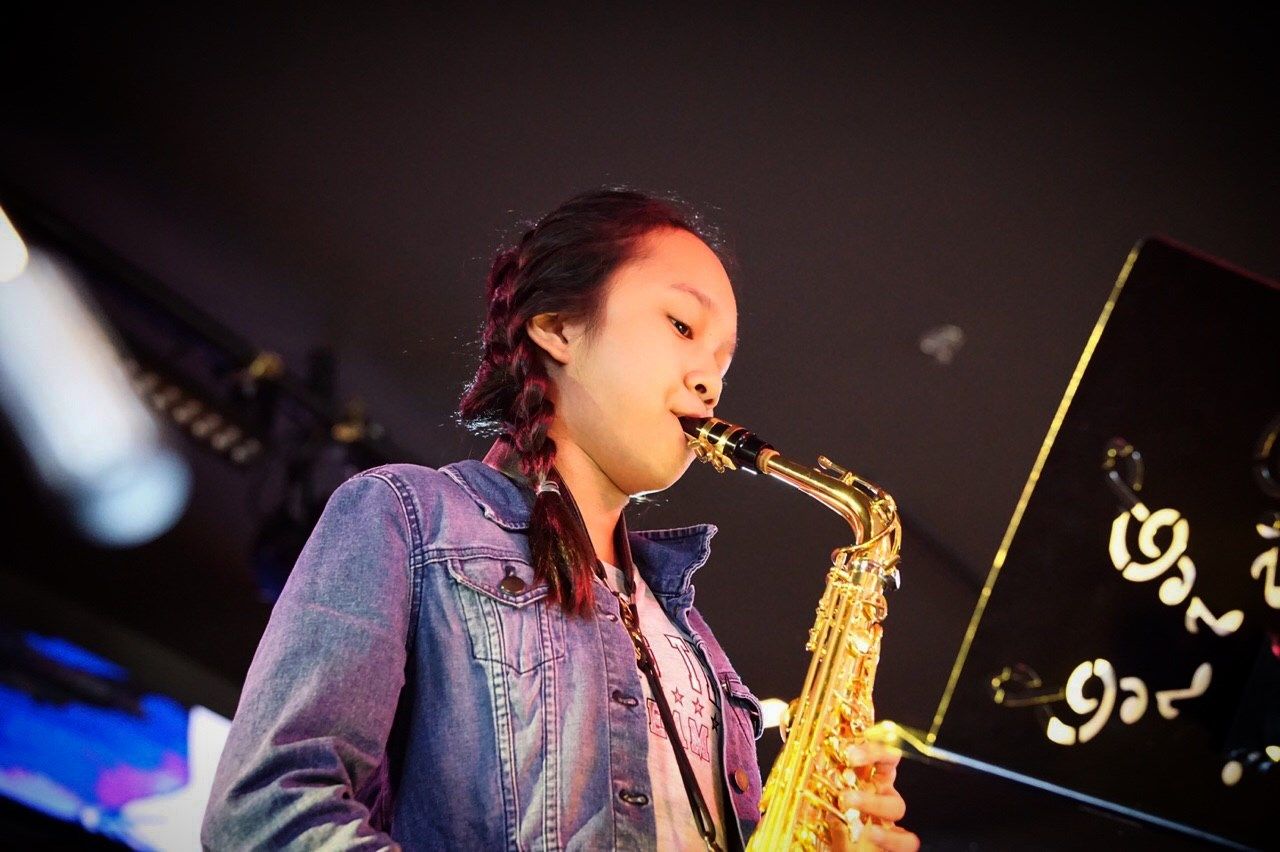
If you are unsure whether your child is ready to begin their music lessons, it doesn’t hurt to have them try out a trial class to see if the instrument chosen for them is a good fit or not.
What Are the Appropriate Programs or Courses to Start?
Finding the right school or program for your child is as critical as choosing which instrument they should play.
Learning in groups for instruments like piano and guitar is a great start for children to build their foundations. The class offers a more interactive and engaging environment allowing students to connect with other children which is a good practice in building their social skills and confidence.
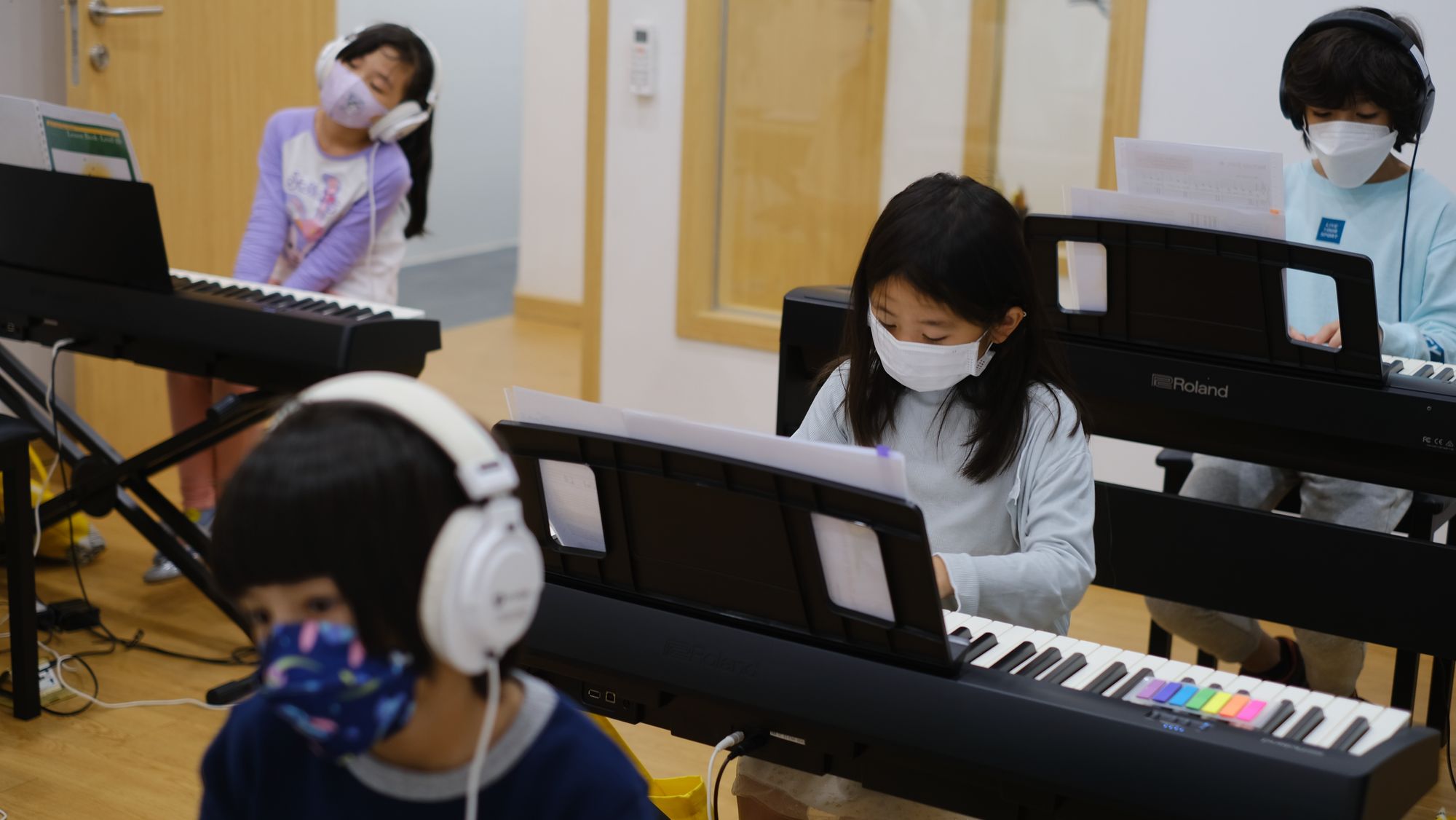
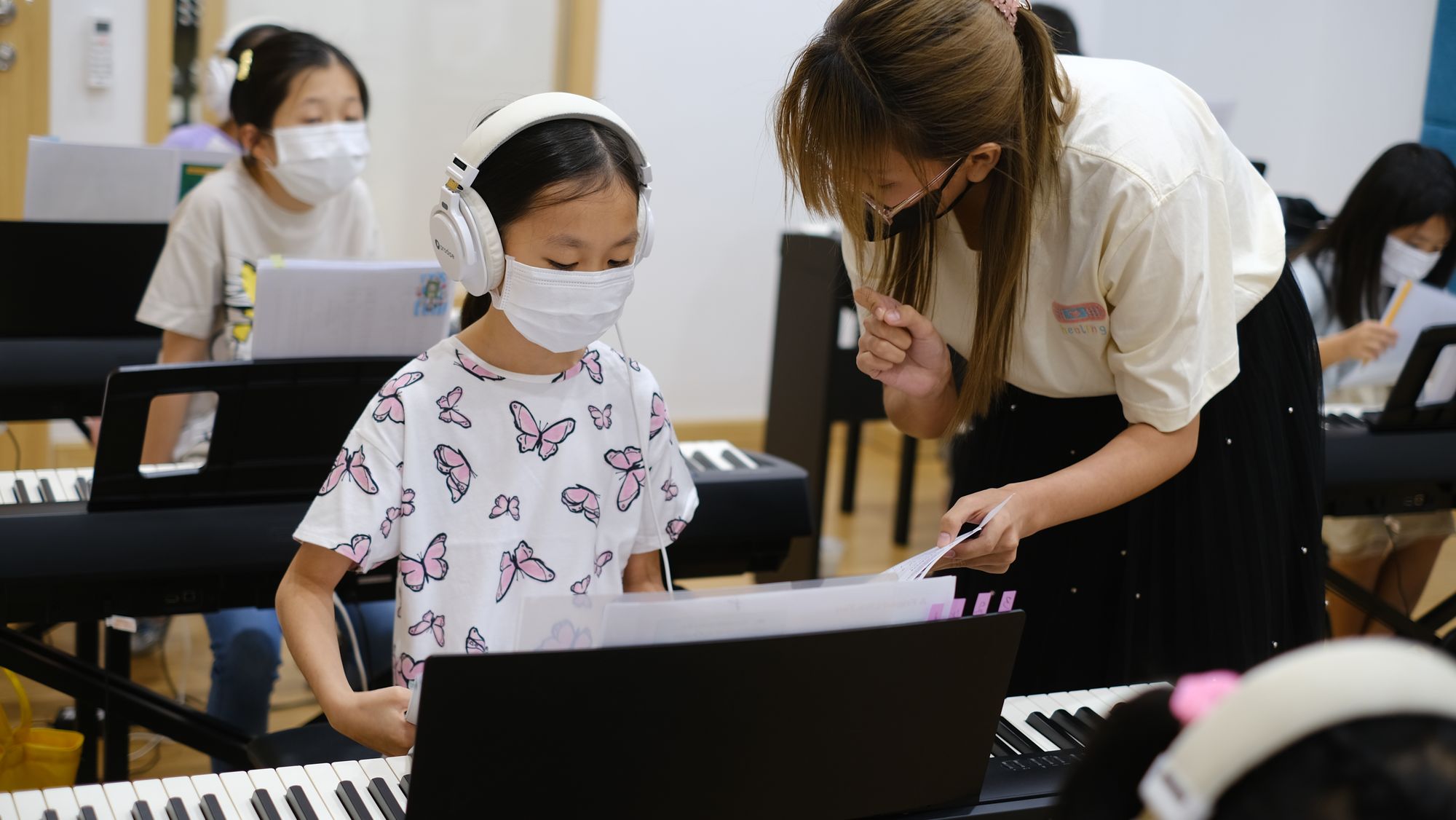
Private lessons provide a one-on-one setting that offers a more focused and personalized environment. Students will get the teacher’s undivided attention for the entirety of the class which can greatly strengthen a child’s progress and development. Private lessons are a great option for children with special needs as lessons will be planned and tailored specifically to the unique needs and learning styles of the students.
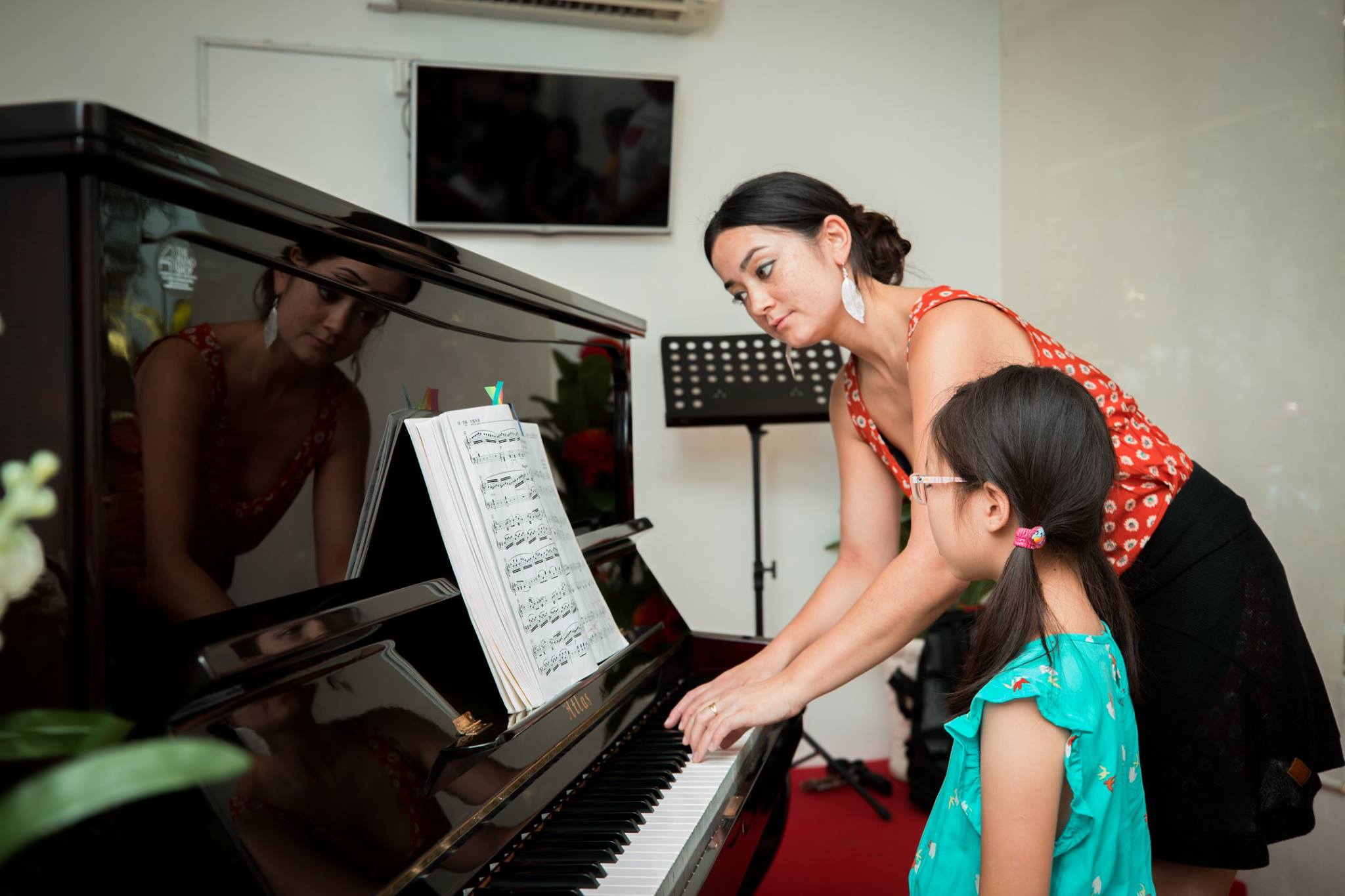
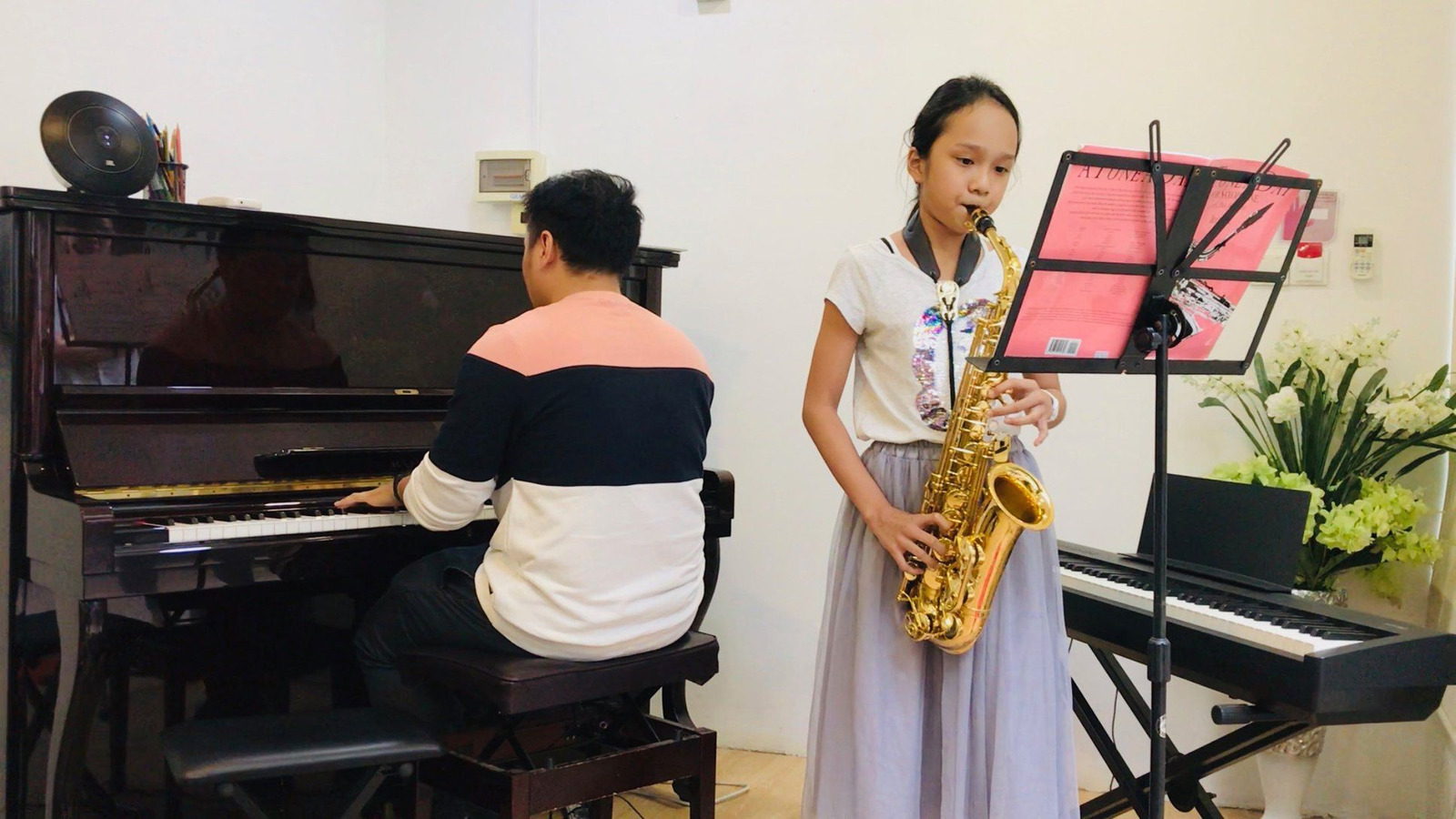
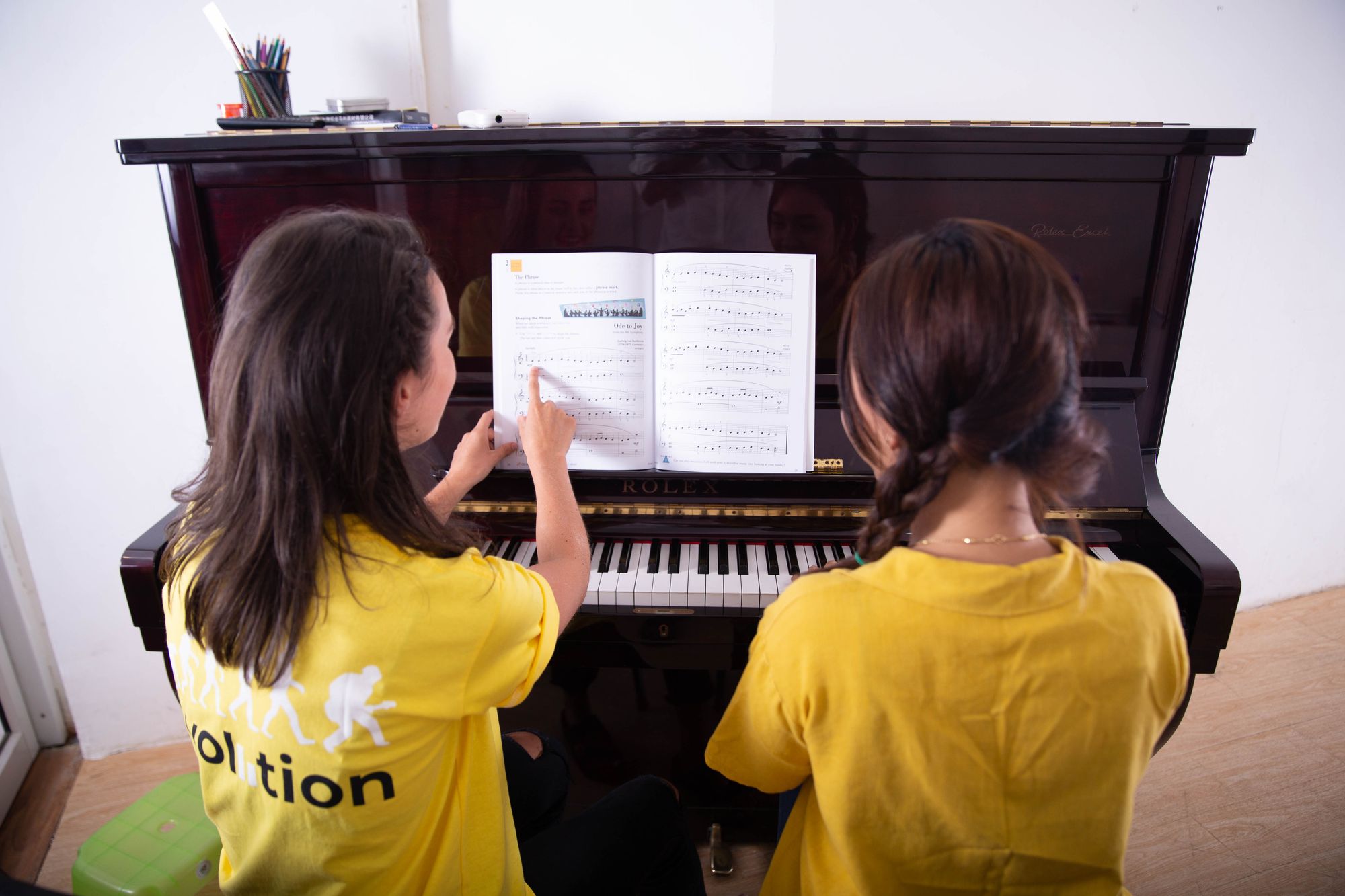
At Soundskool, we welcome learners of all ages and levels. We offer adequate and creative music programs for all learners in a wide variety of instruments with qualified and demonstrative teachers to guide the learning process.
Soundskool offers diverse music programs such as
Koolkids program for children aged 3-5.
Koolkids is an enjoyable group class for children 3-5 years of age. Koolkids is where your child will discover low/high sounds, soft/loud, slow/fast, short/long. Also, they will sing songs, and get an introduction to the different instruments, so they can have an idea of which one they like for the future.
Group class for piano and guitar for students aged 5-12.
Group classes follow a uniquely designed curriculum that provides students with high-quality instruction at a fraction of the price of private lessons.
Private lessons for piano, guitar, bass, ukulele, drums, violin, saxophone, and vocals.
Private class is a one-on-one class recommended for musicians of all levels, from beginner to advanced. Offered for piano, guitar, drums, violin, vocal, bass guitar, saxophone, and ukulele.
Start your child’s music journey with us today!
Inquire more about the course? Drop by one of our schools or contact us.
Visit Soundskool: Toul Kork, Toul Tom Poung, Norodom, Siem Reap
Contact school desk: Toul Kork, Toul Tom Poung, Norodom, Siem Reap
Register online for the new study term: soundskool.asia/music-school-cambodia/
Find us: soundskoolcambodia/contact-info

